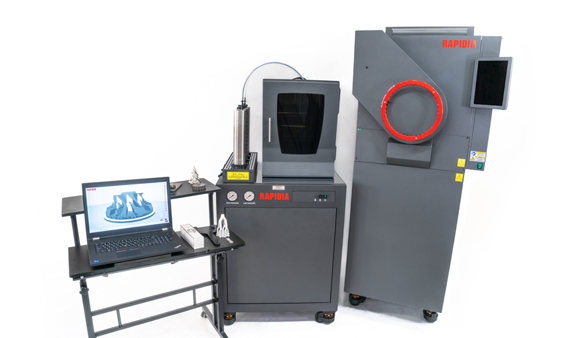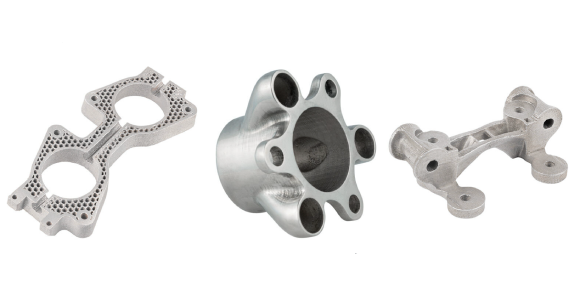Rapidia showcases its two-step metal AM process to European market
December 1, 2022

Exhibiting at this year’s Formnext for the first time was Canada’s Rapidia, bringing its two-step metal extrusion Additive Manufacturing technology to the European market and launching its Advanced Vacuum Sintering Furnace.
Established in 2016, Rapidia has developed what it claims is a simple, fast, and accessible method of Additive Manufacturing metal, centred on a water-based feedstock. In 2020, the company partnered with ExOne to establish the Metal Designlab, complementing ExOne’s Binder Jetting product line. Following ExOne’s acquisition by Desktop Metal in late 2021, that partnership ended and Rapidia has returned to independent distribution of their hardware and feedstock.
Rapidia’s two-step AM technology, first revealed in 2019 and since refined, sees water-bound metal and ceramic parts go directly from the build stage into a furnace, without a debinding stage. The process is made possible by HydroFuse, a water-based paste containing metal or ceramic powders, which does not require debinding before final sintering.
Along with the AM machine and feedstock, the company has also launched its Advanced Vacuum Sintering Furnace. This furnace offers partial pressure sintering in argon, and is said to yield excellent metallurgy. Non-flammable forming gas mixtures are also compatible.

Parts can be sintered directly from the AM machine in approximately twelve hours, meaning components can be available within sixteen to twenty-four hours from the beginning of a build.
Leveraging the open architecture of the technology, research partners have formulated specialised pastes with Rapidia materials and have developed their own sintering cycles for the furnace, the company has stated. The research community has said that the straightforward system allows them to focus on these new materials and techniques.
Off-the-shelf materials from Rapidia include stainless steels 316L and 17-4 PH, offering corrosion resistance and strength, along with Inconel 625 for high-temperature performance and enhanced corrosion resistance.
The team is currently engaging with European customers to bring the first system to the market in Q1 of 2023.
















